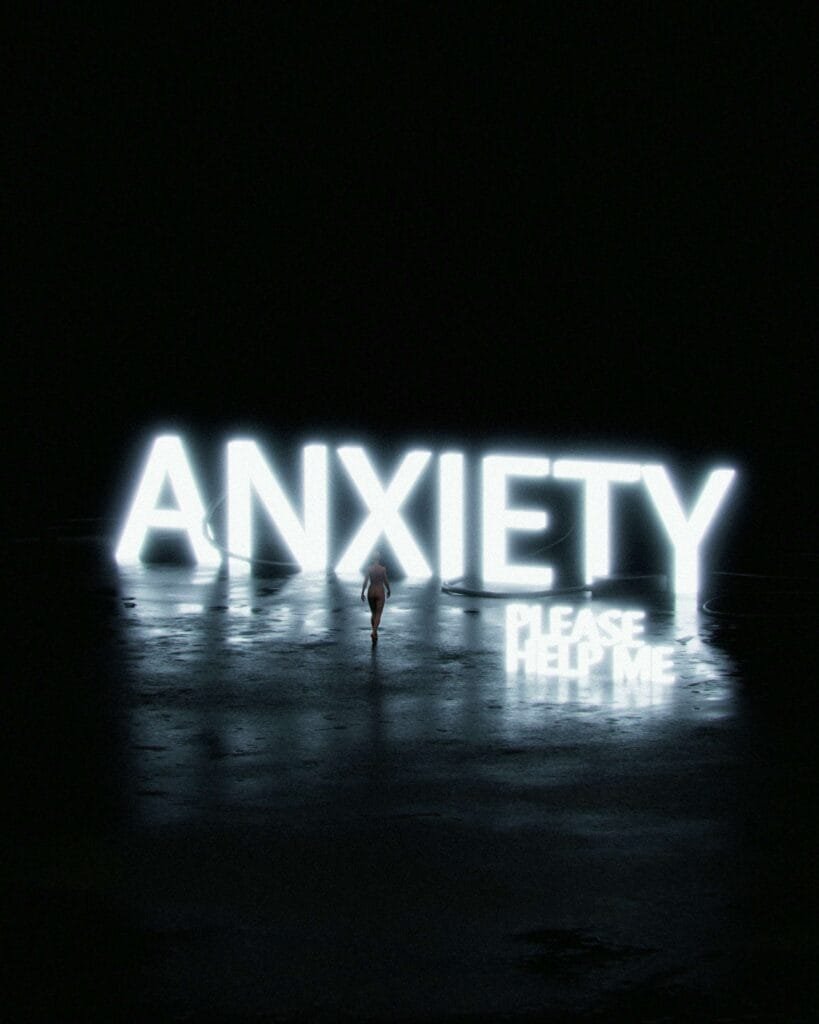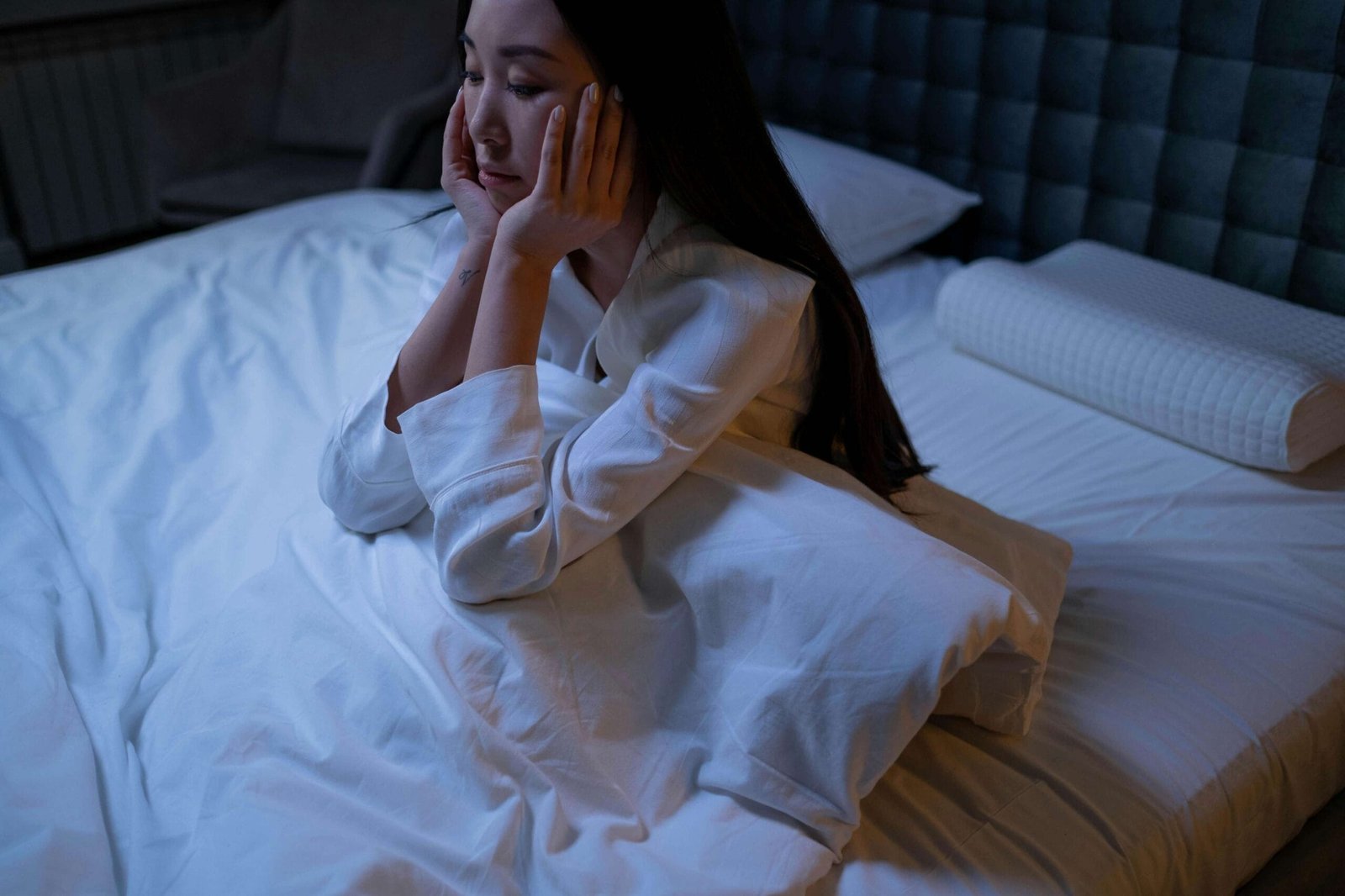Introduction
Insomnia is a sleep disorder that affects millions of people worldwide, preventing them from falling asleep, staying asleep, or waking up feeling refreshed. Whether it’s occasional sleeplessness due to stress or chronic, persistent sleep disturbances, insomnia can have significant negative effects on your physical health, mental well-being, and overall quality of life.
This guide will explain the common causes, key symptoms, and the most effective treatments for insomnia to help you understand the condition and how to manage it better.
Table of Contents
What Is Insomnia?
Insomnia refers to difficulty falling asleep or staying asleep, even when you have the opportunity to do so. It can manifest as acute (short-term) or chronic (long-term), depending on the frequency and duration of sleep problems. Acute insomnia may last for a few days or weeks and is often triggered by temporary stress, while chronic insomnia occurs three or more times per week for at least three months and may indicate an underlying health issue.
- Primary insomnia: This form of insomnia occurs without any obvious medical, psychiatric, or environmental cause.
- Secondary insomnia: Here, the insomnia is caused by an underlying issue such as a medical condition, medication, or lifestyle factors.
Causes of Insomnia
Understanding the root cause of insomnia is key to finding the right treatment. Some of the most common causes include:
1. Stress and Anxiety

Stressful life events, such as job loss, financial difficulties, or relationship problems, can trigger acute insomnia. Persistent stress or anxiety about daily life can lead to chronic insomnia.
- How it affects sleep: Stress stimulates the production of cortisol, a hormone that keeps your body in a state of alertness, making it harder to relax and fall asleep.
- Solution: Incorporating relaxation techniques such as mindfulness, meditation, or deep breathing exercises before bed can help manage stress and reduce insomnia.
2. Depression
Depression and insomnia often go hand-in-hand. Depression can lead to changes in sleep patterns, such as difficulty falling asleep, waking up frequently during the night, or waking up too early in the morning.
- How it affects sleep: Depression may alter brain chemistry, leading to disturbances in the production of sleep-related hormones like melatonin and serotonin.
- Solution: Treating the underlying depression through therapy, medication, or lifestyle changes often improves insomnia as well.
3. Poor Sleep Habits
Irregular sleep schedules, using electronic devices before bed, or engaging in stimulating activities in the evening can all contribute to insomnia.
- How it affects sleep: Poor sleep habits disrupt your circadian rhythm, making it difficult for your body to know when to feel sleepy or wakeful.
- Solution: Creating a consistent sleep routine and optimizing your sleep environment can help regulate your body’s internal clock and promote better sleep.
4. Medical Conditions
Chronic pain, asthma, heart disease, acid reflux, and other medical conditions can interfere with sleep by causing discomfort or sleep disruptions.
- How it affects sleep: Pain or physical discomfort keeps your body from relaxing, leading to sleep disturbances throughout the night.
- Solution: Treating the underlying medical condition, adjusting medications, or using sleep aids can alleviate insomnia.
5. Medications
Certain medications, such as antidepressants, corticosteroids, and stimulants for ADHD, may cause insomnia as a side effect.
- How it affects sleep: These medications can interfere with brain chemistry and hormone production, making it difficult to fall asleep or stay asleep.
- Solution: If a medication is causing insomnia, consult your doctor for possible adjustments or alternatives.
6. Caffeine, Nicotine, and Alcohol
Caffeine and nicotine are stimulants that can keep you awake long after consuming them, while alcohol may cause sleep disturbances during the night, even if it initially makes you feel drowsy.
- How it affects sleep: Stimulants interfere with the natural production of sleep-inducing chemicals like melatonin, and alcohol disrupts your sleep cycle by affecting REM sleep.
- Solution: Avoid caffeine, nicotine, and alcohol, especially in the late afternoon and evening, to promote better sleep.
Symptoms of Insomnia

The symptoms of insomnia can vary depending on whether the condition is acute or chronic, but common symptoms include:
- Difficulty falling asleep at night
- Waking up frequently during the night
- Waking up too early in the morning
- Feeling tired or groggy upon waking up
- Daytime fatigue or sleepiness
- Irritability, anxiety, or depression
- Difficulty concentrating or focusing during the day
- Tension headaches or stomach problems due to lack of sleep
Chronic insomnia can also lead to more severe health issues, such as an increased risk of cardiovascular disease, diabetes, and weakened immune function.
Effective Treatments for Insomnia
Fortunately, insomnia can be treated with a variety of methods, from lifestyle changes to professional medical interventions. Here are some of the most effective treatment options:
1. Cognitive Behavioral Therapy for Insomnia (CBT-I)
CBT-I is a structured program designed to help individuals identify and change thoughts and behaviors that contribute to insomnia. It focuses on techniques such as stimulus control, sleep restriction, and relaxation training.
- How it works: CBT-I helps individuals break the negative cycle of worrying about sleep and teaches them to create healthier sleep habits. It is considered one of the most effective long-term treatments for chronic insomnia.
2. Medications
While medication is not always the first line of treatment for insomnia, certain medications, such as sleeping pills or melatonin supplements, may be prescribed in severe cases or for short-term relief.
- How it works: Sleep medications work by either increasing the production of melatonin or by helping your body relax so that you can fall asleep more easily. However, they are generally not recommended for long-term use due to the risk of dependency.
3. Lifestyle Changes
Making certain lifestyle adjustments can significantly improve your ability to fall asleep and stay asleep. These changes may include:
- Reducing caffeine intake, especially in the afternoon and evening
- Limiting naps, particularly in the late afternoon
- Exercising regularly, but not too close to bedtime
- Creating a comfortable sleep environment
- Establishing a consistent sleep schedule
- How it works: These lifestyle changes help to reset your body’s circadian rhythm and promote better sleep by reducing external and internal factors that contribute to insomnia.
4. Sleep Hygiene
Sleep hygiene refers to the habits and practices that help create an optimal environment for sleep. Good sleep hygiene involves maintaining a consistent sleep schedule, creating a relaxing bedtime routine, and keeping your sleep environment conducive to rest.
- How it works: By improving your sleep hygiene, you eliminate many of the common triggers of insomnia, such as overstimulation or discomfort. This approach focuses on creating the right conditions for restful sleep.
5. Relaxation Techniques

Incorporating relaxation techniques, such as mindfulness, progressive muscle relaxation, or deep breathing, into your nightly routine can help reduce stress and anxiety, which are major contributors to insomnia.
- How it works: Relaxation techniques help shift your body from a state of alertness to relaxation, making it easier to fall asleep and stay asleep.
When to See a Doctor
If your insomnia persists despite making lifestyle changes and adopting good sleep hygiene, it may be time to seek professional help. Chronic insomnia can have serious health consequences, including increased risk of heart disease, depression, and impaired cognitive function.
You should consult a doctor if:
- Insomnia lasts for more than three weeks
- Your sleep difficulties are affecting your daily life
- You experience severe symptoms, such as extreme daytime fatigue or mood disturbances
- You suspect an underlying medical condition or medication may be causing your insomnia
A healthcare provider can help determine the cause of your insomnia and recommend the most appropriate treatment.
Conclusion
Insomnia is a challenging condition, but with the right knowledge and treatment, it can be effectively managed. By understanding the causes, recognizing the symptoms, and implementing evidence-based treatments, you can take control of your sleep and improve your overall well-being.
If you’re struggling with insomnia, try making some of the lifestyle changes outlined in this guide, and don’t hesitate to seek professional help if needed. Quality sleep is essential for both your physical health and mental clarity, and taking steps to address insomnia can make a significant difference in your life.
Visit our blog page for more articles.
Visit alphanewsweb.com for up to date and exclusive news stories!





